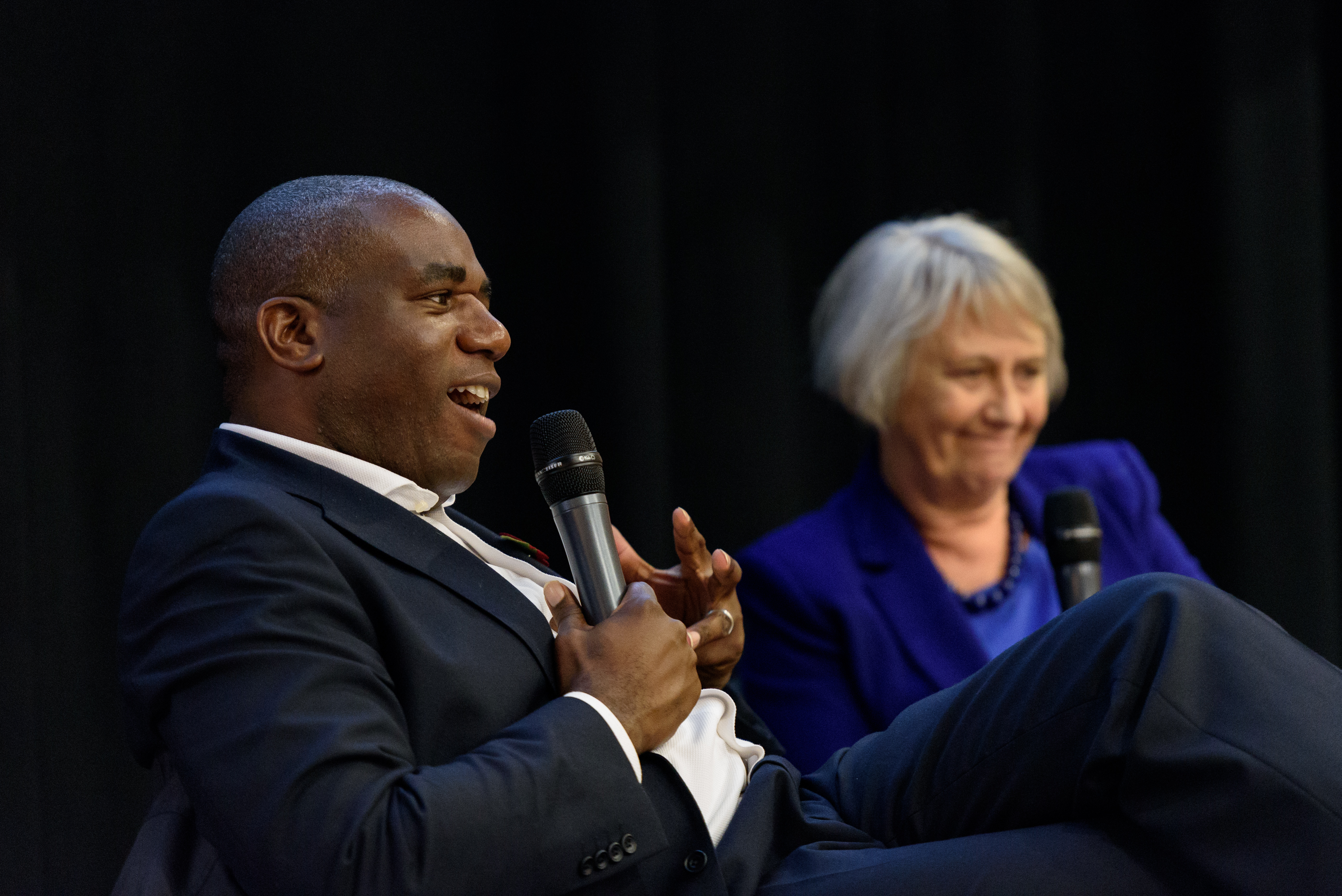The Lammy Review into the treatment of, and outcomes for, black, Asian and minority ethnic (BAME) individuals in the criminal justice system once again highlighted the significant race inequalities in our justice system. Clinks held two roundtable events at both Labour and Conservative Party Conferences, supported by Barrow Cadbury Trust, to discuss the Review’s findings and recommendations. Each week since an attendee at one of the roundtables has written about their reflections on the review, in the context of their own position and sphere of influence, and what they plan to do in response to it.
On 2nd November David Lammy spoke at Clinks AGM. This final blog in our After the Lammy Review series summarises what he said to Clinks’ members.
“Whilst carrying out my Review I was surprised and concerned by the indifference to race in our criminal justice system – in this respect it is hugely lagging behind other parts of our public sector and other nations. The people who staff our prisons, courts and even voluntary sector organisations working in criminal justice don’t reflect the people who receive their services. The picture of individuals working in the criminal justice system is a very different one you see from the people who live in it – particularly the picture you see when you go into our youth jails.
But let’s be clear, if you are in the criminal justice business in this country then you have got to be in the race business. There needs to be a step change to ensure that this issue does not fall off the table again.
Our criminal justice system can learn from other sectors, particularly education. Notwithstanding the poorer attainment of black boys there isn’t a school in London that doesn’t  recognise and understand these issues. Practice might be patchy outside of diverse metropolitan areas but the recognition that we need to tackle this issue is deeply embedded within the educational establishment and across our schools. By contrast our criminal justice system is decades behind and this needs to change.
recognise and understand these issues. Practice might be patchy outside of diverse metropolitan areas but the recognition that we need to tackle this issue is deeply embedded within the educational establishment and across our schools. By contrast our criminal justice system is decades behind and this needs to change.
Our criminal justice system can also learn from other legal systems across the world. In New Zealand, for example, there is an established general principle that everything possible needs to be done to prevent BAME people getting a criminal record in the first place – and this is a bipartisan and accepted view across the political spectrum.
This recognition is vital because of what it means for a BAME person to end up in the criminal justice system. The double penalty of being from an ethnic minority background and having a criminal record can be hugely damaging for employment prospects and a third of those on Jobseeker’s Allowance have a criminal record. We need to tackle this across the piece but the latest stop and search figures show that we are moving in the wrong direction – whilst the use of stop and search has reduced, disproportionality has actually increased – you are now eight times more likely to be stopped and searched if you are BAME.
It is clear that the system is not working for any BAME group. We need a specific and culturally competent approach and a key part of the solution is a vibrant third sector. There is a need to grow and sustain the number of voluntary sector organisations with the confidence and ability to work with and meet the specific needs of cohorts such as Muslim women or Travellers. These groups are often small in number but high in need and experience high levels of disproportionality – for example, although the data does not exist I suspect from my work on the review that the greatest disproportionality in the system in fact involves the Traveller community.
In terms of legacy I am clear that I will remain on the scene to drive my recommendations forward. Significant work needs to be done to address sentencing disparities and a response is needed on this from the judiciary. The government has accepted my principle of explain or reform and we have succeeded in creating a cross party moment around these issues and the Labour Party as well as government are looking at my recommendations. In summary we have come a long way but there is still a lot of work to do.“
What's new
Blogs
Membership renewals 2026: what members need to know
Publications
Latest on X
The role is for a leader from an organisation focused on racially minoritised people, with expertise in service delivery, policy, advocacy, or related areas in criminal justice. Racial disparities are present at every CJS stage. This role ensures these voices are central in shaping policy to help address and eradicate them. Apply by Mon 18 Nov, 10am. More info: https://www.clinks.org/voluntary-community-sector/vacancies/15566 #CriminalJustice #RR3 #RacialEquity
